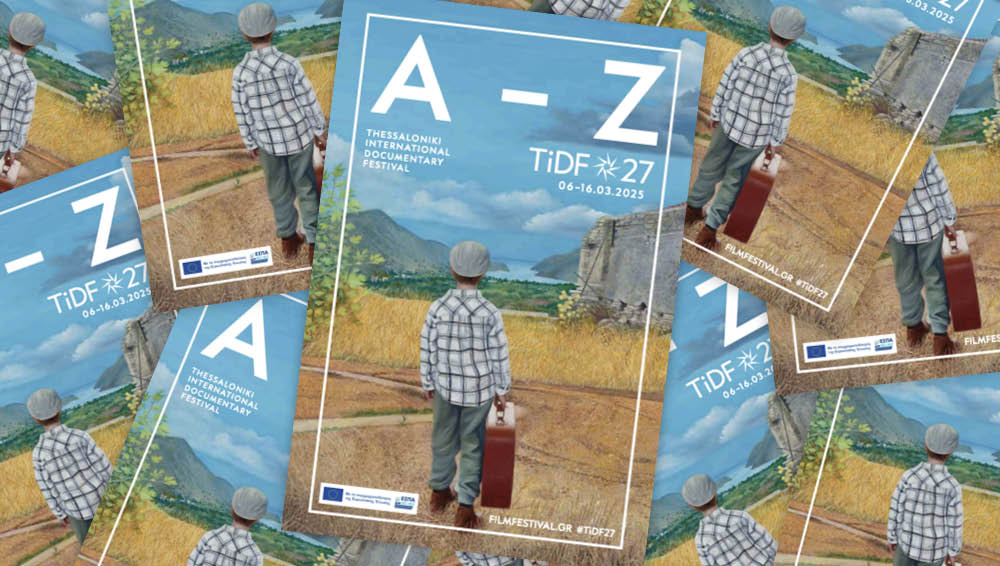As part of the 17th Thessaloniki Documentary Festival, the directors Nicolas Autheman (Greece of Christos Chryssopoulos, Petros Markaris and Ersi Sotiropoulos), Andrew Davies (Katharine Hepburn – The Great Kate) and Robin Dimet (Sounds of the Soul), attended a press conference on Wednesday March 18, 2015.
Andrew Davies, who directed Katharine Hepburn – The Great Kate along with Rieke Brendel, spoke first. As the director explained, inspiration for the movie came from a tribute that the TV channel ARTE showed to commemorate the 10th anniversary of the passing of the great actress. “With the help of Hepburn's nephew Mundy, we discovered how important a part her family had played in her life. The experiences of her childhood years were incredibly important. Her mother was an activist, who fought for human rights and women's right to birth control. Hepburn grew up going to demonstrations. As a child, her parents would tell her that she could do anything she wanted, but that she wouldn’t get anywhere if she didn’t try hard.“ With regards to her long career, Davies thought that the secret of her success was “a product of hard work and a creative working ethic”. Answering the question of whether or not he thought Hepburn would like the documentary, Mundy told him that he “thought Hepburn would have liked the documentary more than anything else that had been written or filmed about her life, because she didn’t like biographies.”
In his documentary Sounds of the Soul, the French filmmaker Robin Dimet attempted to trace the Russian soul, not of an individual person, but of the whole country. He decided to make the film after participating in the Russian project “Cinetrain”, which offered the opportunity to various filmmakers to travel to Russia and document their impressions of the country. Dimet explained: “I wanted to be free to express myself, because the Russian soul is a concept which is very abstract. I decided to focus on the people that live on the border of society, like the unemployed. I wasn’t interested in the extremely rich. I wanted to focus on the 60% of the population living with nothing”.
On his trip from Moscow to Siberia, the director spent only three days in each city. “During the day the people were normal, but at night they changed“. One evening one of the characters asked him if he wanted to see blood. “Do you want me to kick a police officer, and you can film it?” he asked him. Dimet met a lot of people whose circumstances were very difficult. “Especially for women, the situation was very hard, because their husbands would drink a lot and not do anything all day. I realized that there are two different “speeds” in Russia, of people that live in big cities and people that live in rural areas.”
Next up was the French filmmaker Nicolas Autheman, whose film Greece of Christos Chryssopoulos, Petros Markaris and Ersi Sotiropoulos looks at Greece today, through the eyes of three Greek writers. “We wanted writers that had different views about the country and also wanted writers from three different generations, to show different perspectives”, the director explained. “All three writers live in Athens, they write about the city and could tell us about real life there. What was important to me was the extent to which we would be able to give an authentic taste of Greece. The writers weren’t as concerned with this. They love Greece and don’t want to live somewhere else, even though there are a lot of things they don’t like about the country”, Autheman noted. After spending four months with the writers and despite the difficulties he came up against for locating archival materials (since his stay in Greece coincided with the closing of public broadcaster ERT) the director felt like he got “an authentic taste of what it means to be Greek.”















